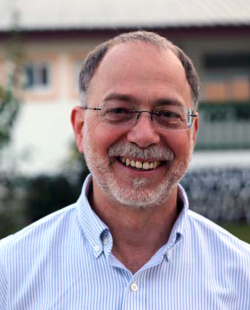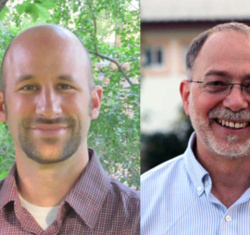
 back to all faculty
back to all faculty
Andy White

About
Andy leads a class on Indigenous and Community Rights, Conservation and Climate Action at SEAS. He also serves as an advisor to the Department of Natural Resources of the Eastern Band of Cherokee Indians to assist their land return and co-stewardship initiatives with federal agencies, and as the convenor for the Pathways Alliance for Change and Transformation (PACT), a new international network of indigenous-led research institutions and their allies.
Before joining the faculty in 2023 he served as president of the Rights and Resources Group (RRG), the secretariat of the Rights and Resources Initiative (RRI), a global coalition of Indigenous and community organizations and their allies dedicated to advancing the land, development and governance rights of Indigenous Peoples, local communities, and Afro-descendants, that he co-founded in 2005. Prior to RRI, he served as senior director at Forest Trends and natural resource management specialist at the World Bank. He worked for the International Food Policy Institute to establish an international research initiative on property rights and collective action, Save the Children Federation, and the Inter-American Foundation.
As coordinator of RRI, he instigated and co-chaired MegaFlorestais, the international network of forest agency leaders and the Interlaken Group network of private investors and NGOs committed to securing community land rights. He also co-created the International Land and Forest Tenure Facility, the world’s first international financial mechanism dedicated to securing the land and self-governance rights of Indigenous Peoples and local communities, and the Community Land and Conservation Finance Initiative, a complementary financial mechanism to channel funds to indigenous and local organizations for their advocacy, conservation, and governance initiatives.
White has had sustained professional engagement with indigenous, government, and private sector leaders in over 30 countries in Africa, Asia and Latin America, in addition to Europe and North America. He has a special love for Haiti and its people from whom he has learned so much about life and “development”. His research and publications have focused on collective action to provide public goods: forest tenure, policy and trade; and the role of Indigenous Peoples and local communities in climate change.
Publications
White, A., and C. Runge. 1995. The Emergence and Performance of Collective Action. World Development. 23 (10), 1683-98.
White, T. A. and J. Jickling. 1995. Peasants, Experts, And Land Use in Haiti: Lessons From Indigenous And Project Technology. Journal of Soil and Water Conservation 50 (1) 7-14.
White, A. and A. Martin. 2002. Who Owns the World’s Forests: Forest Tenure and Public Forests in Transition. Washington, DC: Forest Trends.
Xu, J., and A. White. (eds) 2004. Understanding the Chinese Forest Market and Its Global Implications. International Forestry Review 6 (3-4), ii-iv.
Scherr, S., A. White, and A. Khare. 2004. For Services Rendered: Current Status and Future Potential of Markets for Ecosystem Services Provided by Tropical Forests. ITTC (XXXV)/6. Yokohama, Japan: International Tropical Timber Organization.
Scherr, S. J., A. White, and D. Kaimowitz. 2004. A New Agenda for Forest Conservation and Poverty Reduction: Making Forest Markets Work for Low-Income Producers. Washington, DC: Center for International Forestry Research, Forest Trends, IUCN.
Xu, J, A. White, and U. Lele. 2010. China’s Forest Tenure Reforms: Impacts, and Implications for Choice, Conservation, and Climate Change. Washington, DC: Peking University, Rights and Resources Initiative.
White, A, J. Hatcher, A. Khare, M. Liddle, A. Molnar, and W. D Sunderlin. 2011. Seeing People Through the Trees and The Carbon: Mitigating and Adapting to Climate Change Without Undermining Rights and Livelihoods. Chapter 11. Social Dimensions of Climate Change: Equity and Vulnerability in a Warming World. Washington, DC: The World Bank.
A. White. 2011. Cash Alone Will Not Slow Forest Carbon Emissions. Nature 471 (7338), 267-267.
White has a PhD in forest economics, MA in anthropology, and MS in forestry from the University of Minnesota, and a BS in forestry from Humboldt State University.


